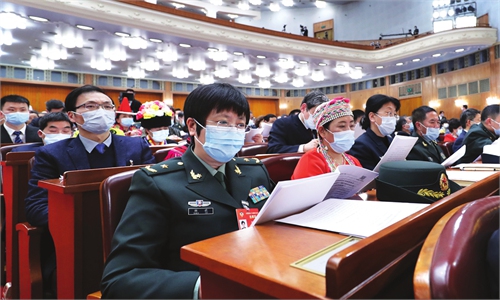
An aerial view of Lingang New Area in Shanghai's Pilot Free Trade Zone. As of November 30, 2020, there were 1,573 foreign-funded enterprises in Lingang. Among them, from August 20, 2019 year to the end of November 2020, a total of 515 foreign-funded enterprises were established with registered capital of over $9 billion. Photo: cnsphoto
China will continue to actively promote opening-up, reduce items on the so-called "negative list" for foreign investment, and accelerate services sector integration with overseas investors, Chinese Premier Li Keqiang said on Thursday.
China's new development pattern of "dual circulation" aims to develop both the domestic market and expand international opening-up and partnership, Li said.
He said that China's economy has become deeply integrated with the international economy and therefore can't seek development by closing its doors. By developing the domestic market scale, China will provide great opportunities for foreign investors, he said.
Li said that China will build an international business environment ruled by law and market principles. "China will continuously expand opening-up by developing domestic demand so as to make China an important investment destination and a large global market," he said.
However, promoting opening-up requires joint efforts by all involved economies, Li said. He gave the example of the Regional Comprehensive Economic Partnership (RCEP), which is comprised of countries that have different social systems, cultural customs and development stages.
"This shows that only based on mutual respect and equal treatment can countries achieve consensus and common interests, helping to promote the well-being of people and stabilizing industrial and supply chains to inject momentum into the global economy," Li said.
Li said that China is an important part of the global industrial and supply chain and the country will not only implement its own responsibilities but also try to maintain the multilateral trade system based on WTO rules.
"We hold an active and open attitude to both multilateral and bilateral mechanisms if they offer mutual benefits," Li said.



